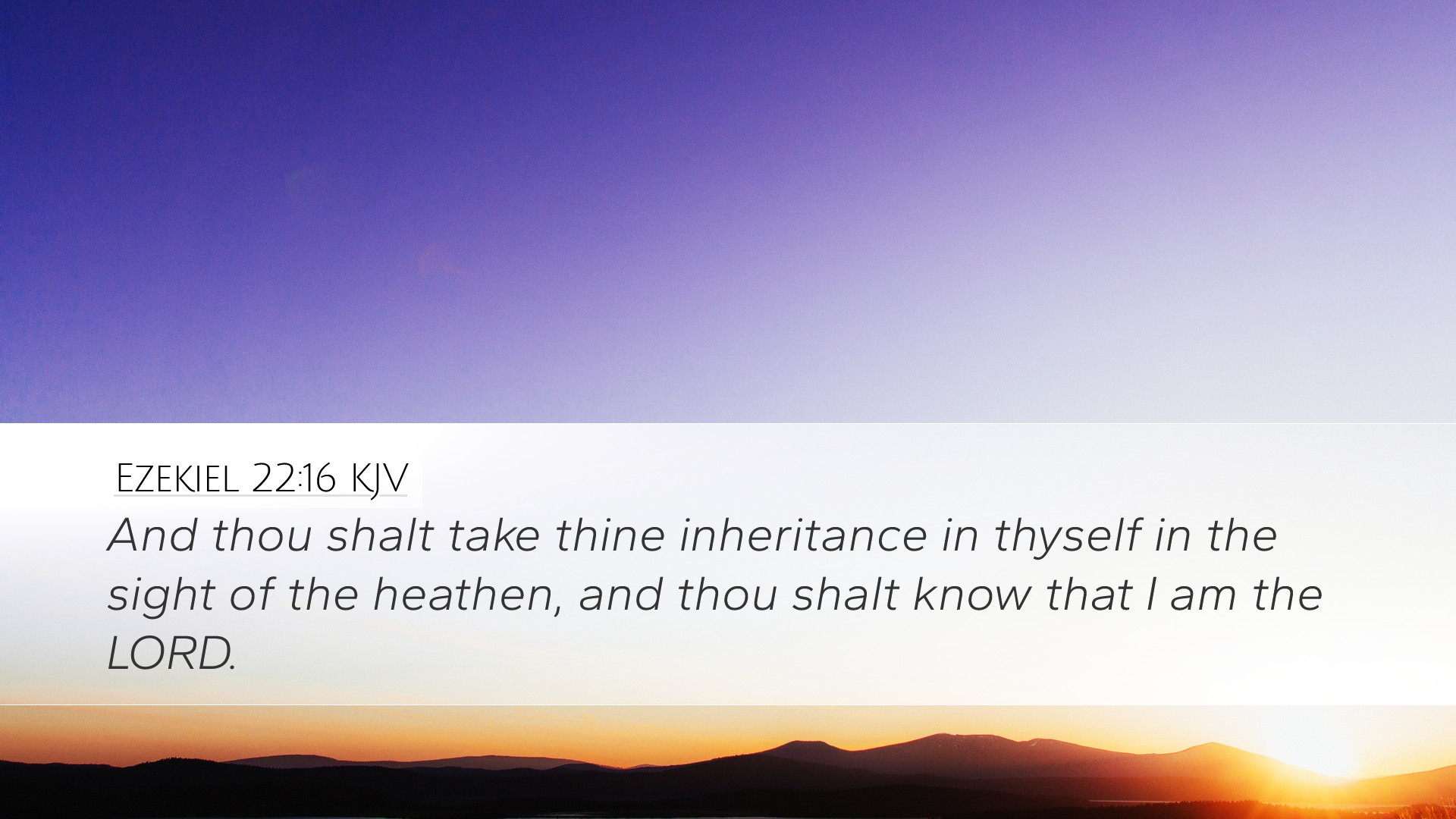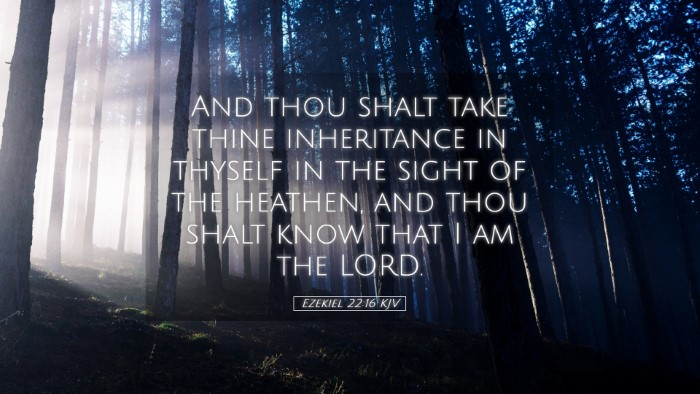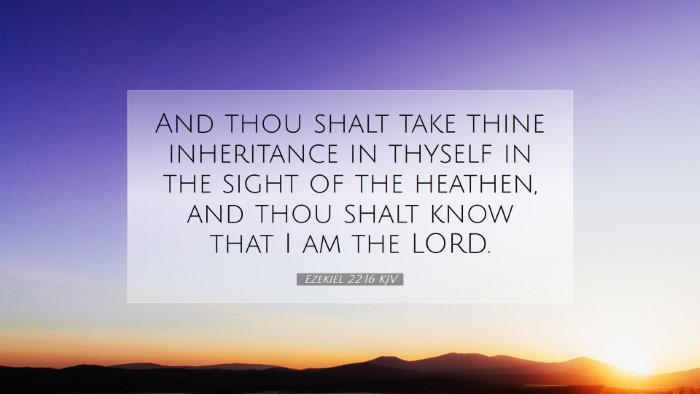Ezekiel 22:16 - Commentary and Insights
Ezekiel 22:16 states: "And thou shalt take thy inheritance in thyself in the sight of the heathen: and thou shalt know that I am the LORD." This verse contains profound implications for the nation of Israel and serves as a crucial reminder for spiritual accountability.
Contextual Overview
The Book of Ezekiel is often regarded as one of the prophetic texts that convey messages of both judgment and hope. In this chapter, Ezekiel addresses the moral decline of Jerusalem, portraying the city's leaders and inhabitants as corrupt and guilty of numerous abominations. This context is key to understanding the implications of the message in verse 16.
Interpretative Insights
The verse indicates a pivotal moment where God's judgment is both announced and clarified:
- Taking Inheritance in Oneself: The phrase suggests a stripping away of external comforts and securities. God is emphasizing that the people of Israel must recognize that their true inheritance lies not in the land or in their status, but in their relationship with Him. This inherently implies a need for self-awareness and self-examination.
- In the Sight of the Heathen: Here, the shame of Israel is placed before the nations surrounding them. Their deportation and degradation serve as a witness to the failure of their covenant with God. This public setting highlights the theological principle that the actions of God’s people reflect on their God, showcasing His righteousness or leading to the heathens questioning His sovereignty.
- Recognition of the LORD: The conclusion of the verse emphasizes a fundamental purpose of divine judgment: for the people to know that God is sovereign. It is a call to recognize Yahweh’s authority and ownership over their lives and their fate. This recognition is not simply intellectual but involves repentance and a return to covenant fidelity.
Commentary Insights
Matthew Henry's Commentary
Matthew Henry provides an insightful perspective on this verse, emphasizing the internal aspect of taking one's inheritance. He notes that it represents a movement from external reliance on earthly security to an intrinsic understanding of one’s identity in God. Henry also points out how the visibility of God's judgment among Israel serves to both chastise and refine them, ultimately drawing them back to a place of reverence and acknowledgment of God's overarching governance.
Albert Barnes' Notes on the Bible
Albert Barnes underscores the prophetic significance of this verse as it relates to Israel’s national identity and fate. He elaborates on the notion of the inheritance taken 'in thyself,' suggesting a transition towards spiritual introspection. Barnes correlates the visibility of Israel's disgrace to a larger narrative where the nations will marvel at the justice and holiness of God. The awareness of God's presence as a corrective force is crucial in understanding why the judgment is made public and why the people must come to know Him in this way.
Adam Clarke's Commentary
Adam Clarke adds depth by examining the sociopolitical implications of this pronouncement. He articulates that the acknowledgment of Yahweh's sovereignty amidst the public shame serves a dual purpose: it brings accountability to Israel while also functioning as a testimony to surrounding nations. Clarke emphasizes that this moment acts as both a warning and an invitation for Israel to reclaim their spiritual heritage, grounded not in geography but in the presence of God.
Applications for Modern Readers
This verse can inform contemporary understanding for several audiences:
- Pastors: Leaders are reminded of the importance of preaching a message that encompasses both judgment and grace. The call to recognize God’s sovereignty must be a central theme in their ministry.
- Students of Theology: Theological learners can draw lessons from the importance of the covenant relationship and the consequence of ignoring divine mandates. The intersection of judgment and mercy should always lead scholars back to an understanding of God’s character.
- Bible Scholars: This verse invites deeper exegetical study into the socio-historical context of Israel’s failures. Scholars are encouraged to investigate the intertextuality of judgment themes within prophetic literature and how they relate to New Testament understandings of grace and redemption.
Conclusion
Ezekiel 22:16 serves as a powerful reminder of the consequences of turning away from God and the importance of recognizing His sovereignty. It challenges believers, scholars, and leaders alike to embrace a deeper understanding of their identity in God, urging all to reflect on how living in faith impacts not only their lives but also their testimony before others. The interplay between judgment and acknowledgment of the Lord serves as a key theological principle that continues to resonate through generations.


